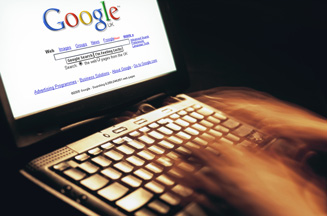Businesses don’t need agencies to buy media for them any more, they need them to manage it. If, as Sir Martin Sorrell recently suggested, media is a "changing industry", then this at the heart of that change.
The slowdown in growth of major media companies does not portend the death of the agency, but its transition. Google and Facebook have created platforms where media spend is centralised and accessible, removing the need for a specialist media buyer, but creating demand for a specialist operator of their advertising technology.
Digital media platforms are designed to be accessible, but there is still a gulf between a competent and specialist execution of any PPC campaign – and so long as there is this gap, media agencies will survive by bridging it.
The impulse towards an in-house approach, or even a consultancy, is understandable in the context of such a transitional, and often untrustworthy, period for media agencies. However, it will be short-lived. There is simply no better option than to partner with an agency dedicated to the optimisation of online advertising.
Perhaps people underestimate the complexity of successful PPC. Take AdWords as an example. It’s a platform that changes every month: new ways of reporting, changes to its metrics, adaptations of its ad unit, new targeting options, new bidding options, gradual tweaks to its primary algorithms, and the ongoing shift in the way people search.
Just to cope with these changes requires considerable adaptability. But to outperform the millions of advertisers you are in competition with, that requires the concerted effort of an entire business. Building software to enhance capability, using automation to optimise every process within account management, processing the enormous supply of data any campaign acquires – these are challenges that require teams of experts.
Agencies can give advertisers the competitive edge, by supplying them with the additional expertise and technology needed to stand out from the crowd. Ultimately, this comes down to data and automation—being able to extract value from the enormous supply of data that digital advertising involves, and using automation to enhance capability.
This is why PPC should have long ago been cut from the media plan of advertisers. It never belonged there. It is not something you buy up-front, and it’s certainly not something you let run. Likewise, PPC is well beyond the grasp of a management consultancy: you can’t just poke your head into an industry and apply common sense, it takes constant vigilance to even stay afloat.
Google and Facebook’s dominance is a source of disconcertment to many. To me, it represents progress. Much lower barriers of entry, far greater transparency, and, of course, measurable, targetable, and data-rich.
Digital is no longer the place to go for cost-effectiveness, or performance marketing. As its empire grows, and as the last bastions of traditional media (TV, outdoor) become increasingly available programmatically, digital media is becoming the only media. And, soon enough, digital agencies will be the only agencies too.
Once again, buying power is no longer relevant. The modern media agency is only valuable, these days, for its brainpower.
Dan Gilbert is chief executive of Brainlabs


